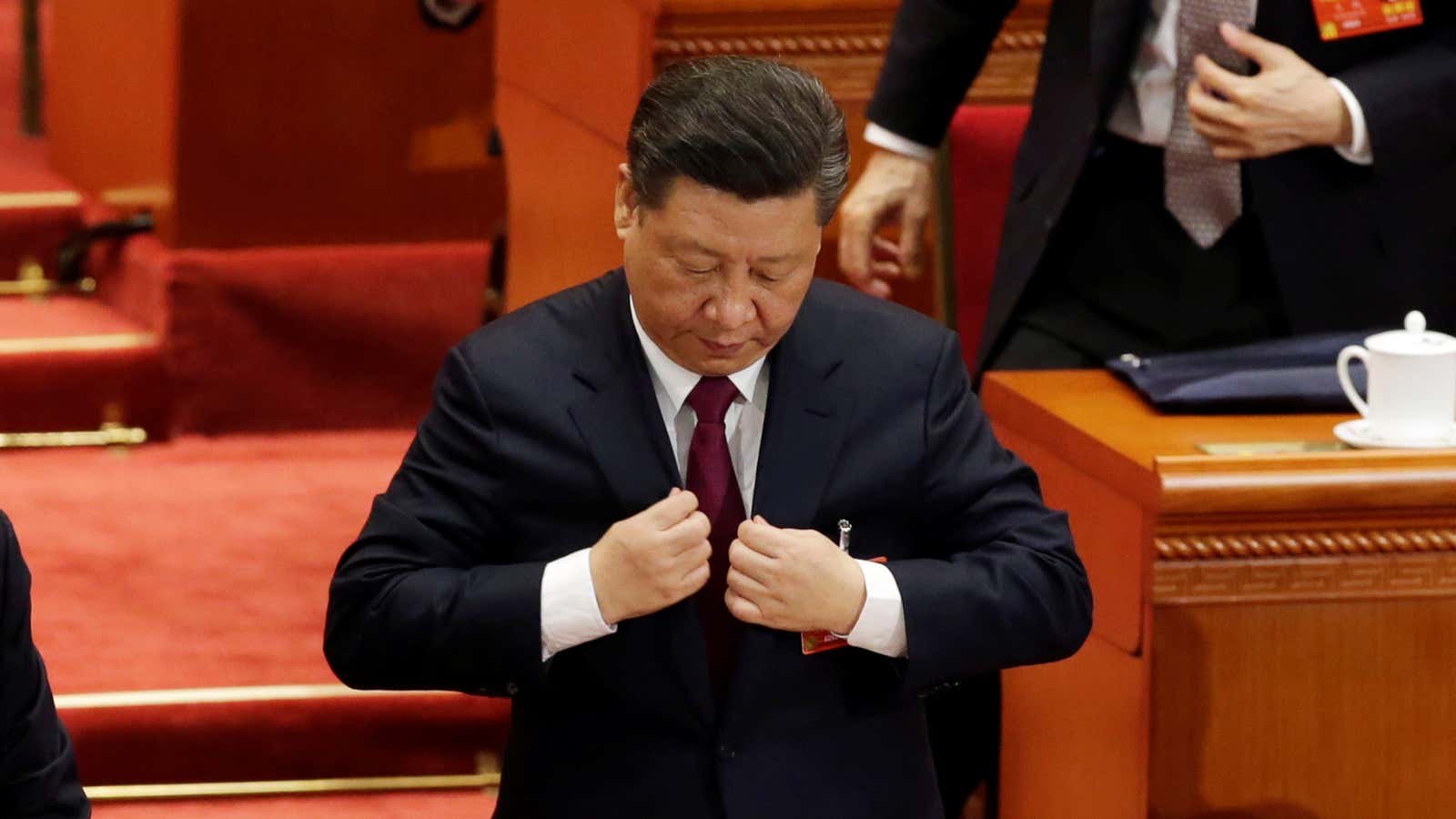China’s Communist Party has proposed removing the 10-year presidential term limit from the country’s constitution, potentially paving the way for Chinese leader Xi Jinping to stay in power for life. This week, the party provided the first official justification for the move: It’s just what the Chinese people want.
And it must just be a coincidence that party chief Xi Jinping initiated the term limit move the same day he kicked a key rival out of the party.
It is the wildest card president Xi has played yet in his constant efforts to amass more power. It has drawn huge criticism from Chinese intellectuals and foreign experts alike, who warn that China is making a U-turn back to the personalist style of Mao Zedong, the nation’s autocratic founder whose rule was known for its upheaval. But at the opening of the annual gathering of the National People’s Congress (NPC), Wang Chen, the legislature’s deputy chief, told nearly 3,000 delegates that the proposal is the result of a massive public consultation effort:
During consultations and surveys at the grass-roots level, many regions, departments and members of the party and the public have unanimously called for the rules on presidential term limits in the constitution to be revised.
Although it’s impossible to verify Wang’s account (link in Chinese), circulated on state-run media, he still gave a rare look into how the decision to scrap the term limit came about. Wang revealed that the move was first proposed by Xi at a meeting of the Politburo, the party’s top decision-making body, on Sept. 29.
According to earlier state media reports (link in Chinese), the same Sept. 29 Politburo meeting also made the crucial decision to expel Sun Zhengcai, seen as a possible successor to Xi, from the party. Sun was put under investigation for corruption in July, and his downfall was read at the time as one of the clearest signs so far that Xi was planning to stay on beyond the expected end of his presidential tenure in 2023. The impression was reinforced after the party’s new seven-person leadership lineup was revealed in October—it included nobody young enough to serve as Xi’s potential heir.
Wang revealed that during the Sept. 29 meeting, Xi decided to set up a work group for constitutional changes, led by outgoing NPC head Zhang Dejiang. Also in the work group were Li Zhanshu and Wang Huning, two of Xi’s most trusted allies who were later elevated to the top leadership in October.
According to Wang, the leadership collected more than 2,600 opinions from regional party cadres as well as representatives of civil society during consultations, and also solicited opinions from a “select number” of party elders for the constitutional changes. The NPC, which is largely a rubber stamp body, is expected to ratify the constitutional changes in closed-door voting on Sunday (March 10).
Wang’s account does beg one question: If this move is what the people want, then why aren’t they allowed to discuss it on the internet?
